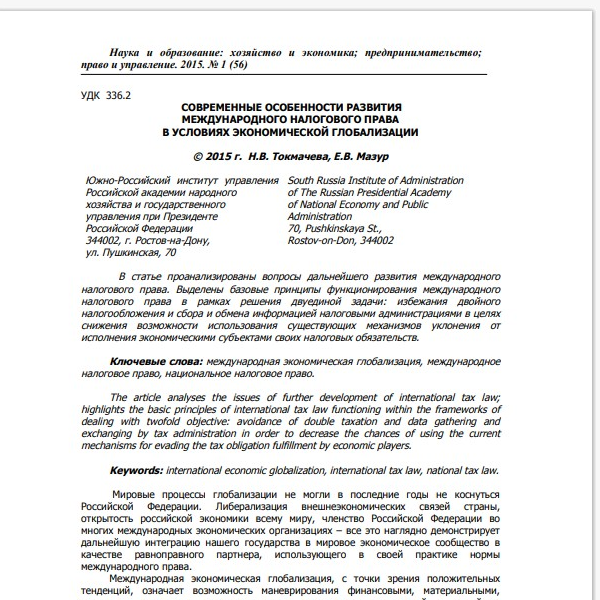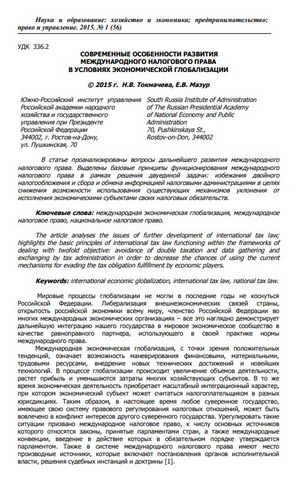Описание
Введение
Цель исследования, представленная в статье, заключается в изучении социологии спорта как важной научной дисциплины и выявлении взаимосвязей физической культуры с обществом и социальными институтами. Авторы поднимают актуальные вопросы о том, как развитие спорта в России, вызванное проведением международных спортивных мероприятий, влияет на социальные процессы, а также на распределение спортивных практик в зависимости от социальной структуры. Актуальность данного исследования обусловлена увеличением значения спорта как в общественном сознании, так и в сфере трудоустройства. Спорт стал престижным направлением, открывающим новые возможности и имеющим значительное влияние на жизнь общества. Поэтому важно исследовать его роль и функции в контексте существующих социологических теорий и практик.
Методология
В исследовании использованы как исторические, так и социологические методы анализа. Авторы рассмотрели развитие социологии спорта в исторической перспективе, проанализировав работы как зарубежных, так и отечественных ученых. Они исследовали элементы социального генезиса спорта и соединение различных социальных процессов с физической культурой. Обоснование выбора методов связано с необходимостью комплексного подхода к пониманию влияния спорта на общество.
Основные результаты
Ключевыми находками статьи являются подтверждение значимости спорта как социального явления, а также выявление динамики роста интереса к социологии спорта. Авторы отметили, что спортивные практики распределяются согласно взаимосвязи между пространством возможных практик (предложением) и пространством их востребованности (спросом). Статистическая значимость данных аспектов подкреплена ссылками на множество предыдущих исследований.
Обсуждение и интерпретация
Авторы интерпретируют полученные результаты как подтверждение того, что спорт является не только формой досуга, но и значимым социальным институтом, взаимодействующим с другими сферами жизни, такими как семья, образование и экономика. В статье упомянуты исследования, которые подтверждают или уточняют представления известных ученых о социологии спорта, демонстрируя богатство теоретических подходов и необходимость дальнейшего их развития.
Заключение
Основные выводы статьи подчеркивают, что социология спорта является необходимым направлением исследований, помогающим понять влияние спорта на различные аспекты социальной жизни. Практическая значимость исследования заключается в возможности внедрения результатов в области социального управления и политики, направленных на развитие физической культуры. Однако, авторы подчеркивают ограничения исследования, связанные с недостаточной институционализацией социологии спорта и отсутствием достаточного финансирования. Рекомендации для будущих исследований касаются изучения социальных изменений и их влияния на развитие спорта.
Ключевые слова и термины
спорт, социология спорта, пространство спортивных практик, социальный генезис, современные социологические теории, институционализация социологии спорта.
Библиография
Bernstein S. Communist Uprising under Stalin: The Political Socialization and Militarization of Soviet Youth, 1934—1941. University of Toronto; 2013. Dunning E. Sport Matters: Sociological Studies of Sport, Violence, and Civilization. London — New York; 1999. Elias N. On transformations of aggression. Theory & Society. 1978; 5 (2). Risse H. Soziologie des Sports. Berlin; 1921. Sharkov F.I., Silkin V.V. Sportivnaya zhurnalistika v sisteme sovremennoy mediakommunikatsii [Sports journalism in the system of contemporary media communication]. Kommunikologiya. 2018; 6 (4).


Отзывы
Отзывов пока нет.